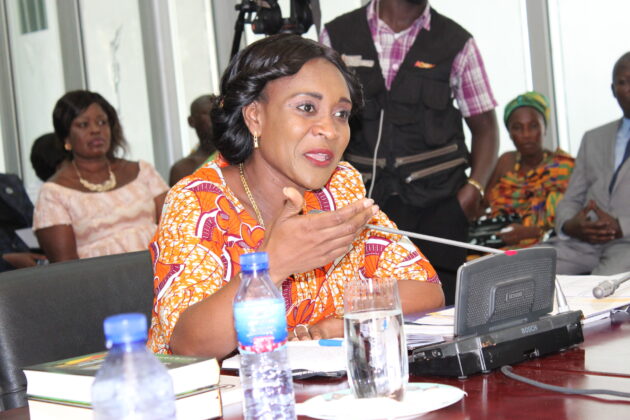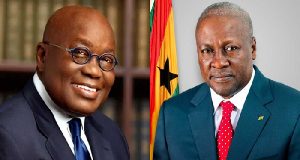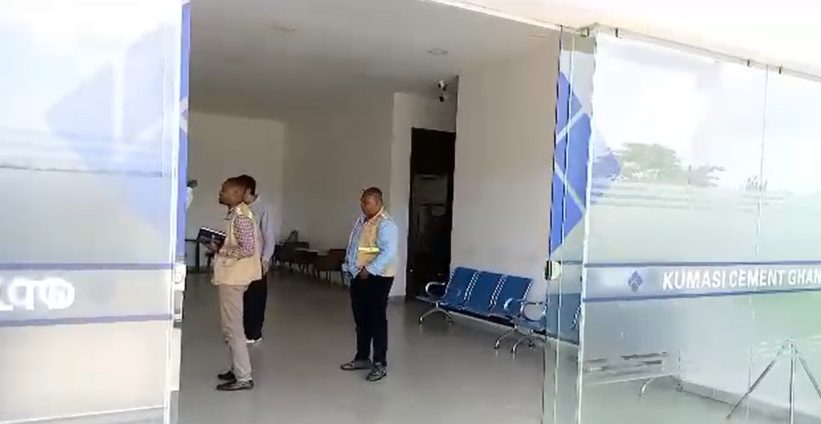
A Deputy Minister of Finance, Mrs Abena Osei-Asare, has said 31 upstream companies are yet to pay corporate taxes as captured in the 2020 Auditor General’s Report because they are either in exploration or development stages in their operations.
According to her, they are yet to produce crude oil for sale, and therefore, had not generated income from which to pay corporate taxes and “this is in line with Section 63 and 65 of the income Tax Act 2015 (Act 896).”
Mrs Osei-Asare said this yesterday when she appeared before the Public Accounts Committee (PAC) hearing.
Report
She was at the PAC to discuss the Report of the Auditor-General on the Management of Petroleum Fund for the year ended December 31, 2020.
The Chairman of PAC, Mr James Klutse Avedzi, had indicated that per the Petroleum Revenue Management Act of 2011, Act 815, the Petroleum Holding Fund was established to receive all petroleum revenues to be disbursed.
As part of the law, he said the Ministry of Finance was the main body to supervise the collection and disbursement of petroleum revenue and that other agencies -Controller and Accountant General’s Department (CAGD), the Ghana Revenue Authority, the Ghana National Petroleum Corporation (GNPC) and the Bank of Ghana (BOG), played various roles in the management of petroleum revenue.
Moreover, he said the GNPC was also a beneficiary of the petroleum revenue to cover the cost and interest they had in oil that was produced.
Again, he said the same act mandated the Auditor General to audit the fund and report to Parliament to discuss the findings of the Auditor General.
Important
Responding, Mrs Osei-Asare said the Ministry of Finance took the report and recommendations of the Auditor General seriously as part of the expenditure interventions of the government, and that in that regard the ministry had taken steps to address the issues contained in the Auditor General’s Report on the management of petroleum for the financial year ended December 31, 2020.
The deputy minister said, however, there were some issues the ministry and its agencies would like to draw the PAC’s attention to as part of the infractions cited in the Auditor General’s Report.
She said as indicated by the GRA during the audit to the auditors, all the 35 upstream companies, which had been allocated petroleum blocks, to pay their fees into the Petroleum Holding Fund.
“Regarding the corporate taxes, it was mentioned that four companies paid corporate taxes into the petroleum holding fund because they produced and sold crude oil and, therefore, generated income from their operations and paid their corporate taxes into the Petroleum Holding Fund.
“However, the 31 companies have not paid corporate taxes because they are either in the exploration or development stages,” she said, among other things.
Mrs Osei-Asare noted that the GRA conducted cost audit on some of such companies and took note of the cost build up as indicated in Section 65 of the Income Tax Act 2015 (Act 896).
She appealed to the Auditor General to take account of the law and make it reflect in its report, that is,the legal provisions that allowed companies not to pay taxes until they started producing so that the issue did not appear as an infraction.
Mrs Osei-Asare assured the committee that the Ministry of Finance and Controller and Accountant General were monitoring the operations and the disbursement of the petroleum fund, taking into account the suggestions of the Auditor General.
Clarifications
A member of the committee, Mr Rockson-Nelson Dafeamekpor, who cited a letter from Ghana Gas Company Limited dated December 7 regarding the actual outstanding amount as of December 31, 2020, said on Page 18 of the report, the ministry was still dealing with GH¢334 million as if that was actually what was outstanding when the company was saying it was actually GH¢434 million.
He said he was hoping that the minister would speak to the actual amount of money that the company indicated had been outstanding.
But Mrs Osei-Asare said per the letter, the date for the balance the MP had was December 31, 2020 “and per the Auditor General’s Report, the date for the GH¢334 million was December 31, 2019, so clearly, … this is correct and what you are also holding may be correct but there is a one year time line”
“So it is possible that within that year some money had been recouped but this is for December 31, 2019 and the letter you have in your hand states December 31, 2020. For the figures I think that is how it is, this is 2019, the other one is 2020,” she explained.
Intervening, Mr Avedzi said the report that was being considered was 2020 and a look at page 28; income and expenditure account signed by Deloitte Ghana, it was 2020.
But citing a portion of the report (1.3), Mrs Osei-Asare said outstanding amount due for gas operation increased from GH¢308 million in 2018 to GH¢ 334 million as of December 2019.
The chairman agreed that that was right, saying that it was a status report on outstanding findings.
“So that finding is for 2019 but he had not taken action on it so they are repeating it in the 2020 report, that no action has been taken on it so the period is 2019,” he said.
Source: Graphic
 Naagyei 90.3 Fm Agyapa
Naagyei 90.3 Fm Agyapa




